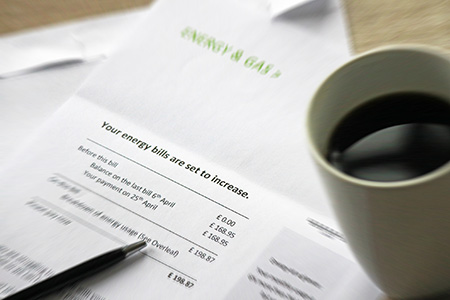Periods of high inflation can be concerning for investors. You want to ensure that your investments at least hold their value, but you might also have market volatility and a strained household budget to contend with.
The Governor of the Bank of England (BoE) has warned that the UK – and the wider world – faces an “apocalyptic” rise in food prices. Such language is alarming, but it is important to note why Andrew Bailey has said this, what it means for you and to remain calm. Inflation now stands at its highest point in 30 years; 7% in March, up from 6.2% in February. The BoE has primary responsibility to try and manage this by controlling interest rates, which now also stand at their highest level in over 12 years (1%, although this is still historically low). Here at Vesta Wealth, our financial planners offer a summary of the present economic landscape in May 2022, how the inflation and base interest rate affect you and what you can do. We hope this is helpful to you.
What is the state of inflation and interest rates in 2022?
The picture is moving quite quickly. At the time of writing in May 2022, inflation (the overall pace of price rises across the UK) stands at 7% – way above the 2% target set by the BoE. Sadly, this increase has largely occurred in many “consumer staple” areas (necessities) like energy, fuel and groceries – making it hard for households to cut costs. The BoE has attributed this, largely, to the war in Ukraine; a major global supplier of agricultural goods, particularly to the Middle East. Russian forces have blocked Ukrainian ships from exporting wheat and cooking oils to the wider world. Andrew Bailey has also warned that prices could rise even further, with an Autumn inflation forecast of 10% (figures not seen since the 1980s).
The BoE can try to stop inflation from rising too quickly by raising interest rates. This creates a stronger incentive to save (due to higher interest rates on regular accounts), and so acts as a “dampener” on consumer spending. However, inflation has continued to rise in 2022 despite the BoE raising interest rates four times in the last 6 months. Andrew Bailey says that at least 80% of this is due to global price movements rather than due to factors in the UK. In other words, the cost of living crisis in 2022 is largely out of the BoE’s control.
What this means for you – and what you can do
As much as we’d like to be optimistic, as financial planners we need to lay out the situation as we see it – to help people prepare their finances. The war in Ukraine is unlikely to end quickly, putting continued upward pressure on UK inflation throughout 2022. This, in turn, will also mean the BoE is unlikely to lower the base rate. Indeed, the BoE has indicated that further rises may be necessary later in the year.
This creates a difficult situation for many households. On the one hand, a higher base rate will likely lead high street banks to raise their own rates – offering better returns for regular savers. However, higher prices in the economy means less disposable income for people to put away and benefit from those better rates. Higher interest rates also mean higher mortgage payments for those on a variable-rate mortgage, or whose fixed-rate deal is coming up for renewal.
If you are thinking about saving more in cash, be aware that most banks are still not raising their interest rates on regular savings accounts due to the base rate rise (although they are raising mortgage rates). Since inflation stands at 7% right now, cash savings will not beat inflation in real terms. If you are looking to build long term wealth, therefore, you may wish to speak with a financial adviser about other assets and investments (e.g. equity funds). These present a higher potential for returns which might beat inflation, but come with the risk of market volatility.
Naturally, you may also wish to revisit your budget. If you have any unused discretionary spending (e.g. digital subscriptions to streaming services), then now might be a good time to pause, cancel or downgrade them. You may also benefit from revisiting your tax plan. Higher earners, for instance, may benefit from increasing their pension contributions to save on the Higher Rate (40%) – using tax relief to further boost your retirement fund.
Invitation
If you would like to discuss your financial plan and retirement strategy, then we would love to hear from you. Get in touch with your Financial Planner here at Vesta Wealth in Cumbria, Teesside and across the North of England.
Reach us via:
t: 01228 210 137
e: [email protected]
This content is for information purposes only. It should not be taken as financial or investment advice. To receive personalised, regulated financial advice regarding your affairs please consult your Financial Planner here at Vesta Wealth in Cumbria, Teesside and across the North of England.

